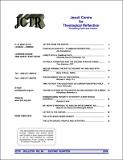| dc.description.abstract | The second quarter of 2009 was an interesting one but also an annoying one. Debates on the global
financial crisis and development aid occupied most of the second quarter in Zambia. The quarter was
interesting because of development debates, but annoying in that Government wasn’t very responsive to the
challenges of strikes, misappropriation of public funds, and questions on the nature of the National
Constitutional Conference (NCC). Actually a National Indaba (5-6 April) on the global financial crisis was
organised by the Zambian Government. To most Zambians' surprise, there was no follow up and we are yet to
see a report of the Indaba. Dambisa Moyo's book Dead Aid aroused a lot of debate with her thesis that aid has
not brought any development to Africa but underdevelopment, corruption and dictatorial states and that aid
should be stopped in five years. Dambisa even came to Zambia (part of her global marathon as a celebrity on
her book) and discussed aid with some Zambian economists and others including our JCTR staffer Humphrey
Mulemba.
Despite the very good arguments of Humphrey that Dambisa's arguments were either faulty or misplaced in
the aid debate, Dambisa arrogantly upheld her position and this was the same in all the places she global
trotted where she closed the debate by not even seeing the good arguments of others. At the same time that
Dambisa published her book, Peter Singer, a much more sober writer, published a book The Life you Can
Save. In Singer’s book, a much sharper reason that people should be moved to give aid is given, namely that it
is just human to help others when they are suffering or "drowning." By just giving a small percentage of one's
earnings (5%), we could actually end world poverty. | en |

